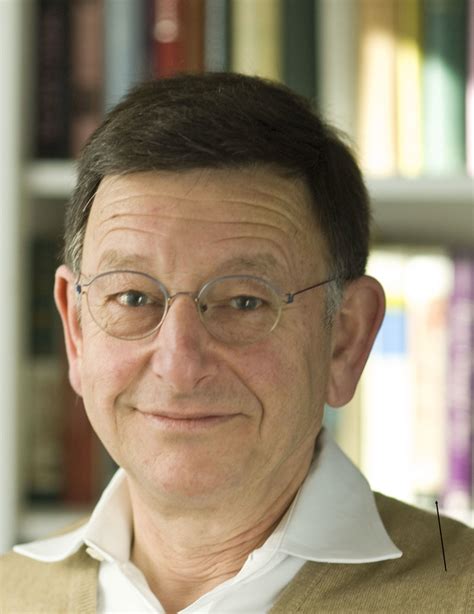A Quote by Marilyn Hacker
Translation is an interestingly different way to be involved both with poetry and with the language that I've found myself living in much of the time. I think the two feed each other.
Related Quotes
In translation studies we talk about domestication - translation styles that make something familiar - or estrangement - translation styles that make something radically different. I use a lot of both in my translation, and modernism does both. For instance, if you look at the way James Joyce presents Ulysses, is that domesticating a classic? Think of it as an experiment in relation to a well-known text in another language.
The two of you, there's something uncanny about the way you two are with each other. I mean everything--the way you look at each other, the way she relaxes when you put your hand on her back, the way you both seem to know what the other is always thinking, it's always struck me as extraordinary. That's another reason I keep putting marriage off. I know I want something like what you two share, and I'm not sure I've found it yet. I'm not sure I ever will. And with love like that, they say anything's possible, right?
Some feminist critics debate whether we take our meaning and sense of self from language and in that process become phallocentric ourselves, or if there is a use of language that is, or can be, feminine. Some, like myself, think that language is itself neither male nor female; it is creatively expansive enough to be of use to those who have the wit and art to wrest from it their own significance. Even the dread patriarchs have not found a way to 'own' language any more than they have found a way to 'own' earth (though many seem to believe that both are possible).
Once upon a time there were two countries, at war with each other. In order to make peace after many years of conflict, they decided to build a bridge across the ocean. But because they never learned each other’s language properly, they could never agree on the details, so the two halves of the bridge they started to build never met. To this day the bridge extends far into the ocean from both sides, and simply ends half way, miles in the wrong direction from the meeting point. And the two countries are still at war.
The practice of translation rests on two presuppositions. The first is that we are all different: we speak different tongues, and see the world in ways that are deeply influenced by the particular features of the tongue that we speak. The second is that we are all the same - that we can share the same broad and narrow kinds of feelings, information, understandings, and so forth. Without both of these suppositions, translation could not exist. Nor could anything we would like to call social life. Translation is another name for the human condition.
Poetry cannot be translated; and, therefore, it is the poets that preserve the languages; for we would not be at the trouble to learn a language if we could have all that is written in it just as well in a translation. But as the beauties of poetry cannot be preserved in any language except that in which it was originally written, we learn the language.
I think that is one of the first things that I got clear in my mind when I began to play around with fiction, that I had to find a language and it was not in existance at the time. You have put it very well - it wasn't to be taken for granted. You had to go on and search until you found a way through the conversation of English and Igbo. The two languages stuck into each other and tried to find a way to express through one, the medium of the thoughts. That's a very exciting thing to do, a very difficult thing to do.
What is … important is that we — number one: Learn to live with each other. Number two: try to bring out the best in each other. The best from the best, and the best from those who, perhaps, might not have the same endowment. And so this bespeaks an entirely different philosophy — a different way of life — a different kind of relationship — where the object is not to put down the other, but to raise up the other.
Being a slow reader would normally be a deficiency; I found a way to make it an asset. I began to sound words and see all those qualities - in a way it made words more precious to me. Since so much of what happens in the world between human beings has to do with the inconsideration of language, with the imprecision of language, with language leaving our mouths unmediated, one thing which was sensuous and visceral led to, in the use of language, a moral gesture. It was about trying to use language to both exemplify and articulate what good is.







































